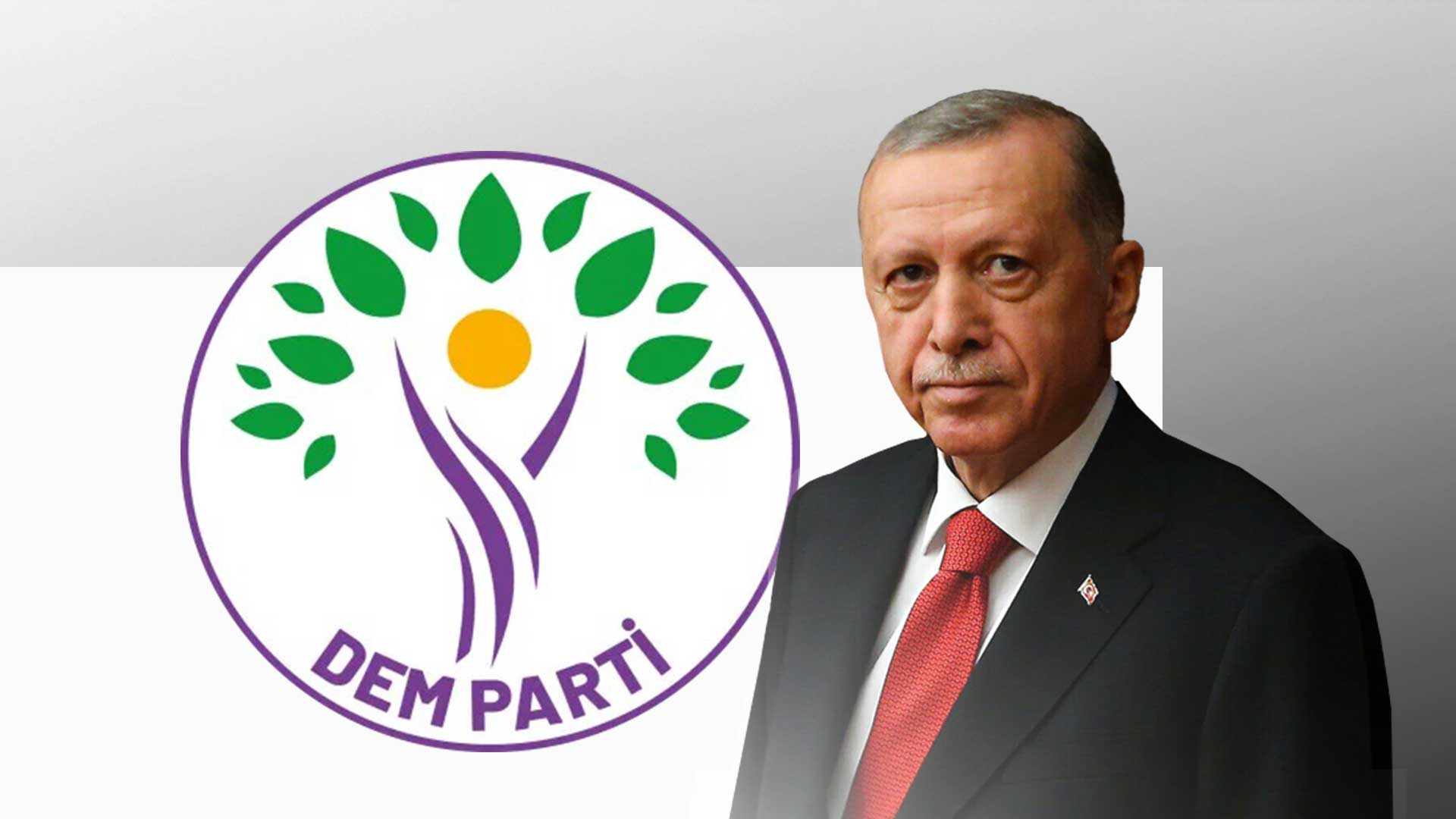Erdogan to Meet DEM Party Delegation Amid Renewed Hopes for Kurdish Peace Process
The Erdogan-DEM meeting coincides with a broader initiative by the Kurdish party to seek regional support for restarting the long-stalled peace process.

By Ahora Qadi
ERBIL (Kurdistan 24) – Turkish President Recep Tayyip Erdogan has confirmed he will meet with a delegation from the Equality and Democracy of Peoples Party (DEM Party) on Thursday, in a highly anticipated encounter that comes amid mounting regional and international attention to renewed efforts for a political solution to the decades-long Kurdish question in Turkey.
Erdogan made the announcement during his party’s parliamentary group meeting on Wednesday, noting that the meeting with the DEM Party will address ongoing developments related to national reconciliation and political engagement.
Parallel Tracks: DEM Party in Ankara and Moscow
The Erdogan-DEM meeting coincides with a broader initiative by the Kurdish party to seek regional support for restarting the long-stalled peace process. A senior DEM Party delegation is currently holding consultations with Russian officials in Moscow, focusing on the most recent appeal by Abdullah Öcalan, the imprisoned leader of the Kurdistan Workers' Party (PKK) a designated terrorist organization by EU, US and Turkey, who has called for a transformation of the Kurdish struggle from armed resistance to political dialogue.
The discussions with Russia are reportedly aimed at securing international backing for a peaceful resolution and conveying the seriousness of Kurdish political actors in pursuing a nonviolent strategy. According to Kurdish sources, the Moscow meetings involve dialogue around mechanisms for ceasefire enforcement, disarmament, and the reintegration of Kurdish militants into political life.
A Defining Moment: PKK Poised for Major Decision
According to reports published by Hürriyet, one of Turkey’s leading newspapers, PKK is preparing for a watershed conference later in April that could mark a fundamental shift in its trajectory. Sources close to the movement suggest the organization is considering a formal declaration of disarmament and potentially dissolving its armed structure—steps that would align with Öcalan’s appeal from prison.
This proposed transformation is seen as a departure from past cycles of negotiation and collapse, which plagued peace initiatives between 1993 and 2015. Observers note that the current geopolitical climate and internal dynamics present a unique window of opportunity to end hostilities and advance Kurdish political rights within a democratic framework.
Erdogan’s Calculus and the Domestic Landscape
For Erdogan, the meeting with DEM Party officials may signal a recalibration of Ankara’s approach to Kurdish politics. While the Turkish president has historically adopted a securitized posture toward Kurdish movements, his willingness to engage with DEM representatives suggests potential flexibility in exploring a roadmap toward inclusive governance and national reconciliation—especially ahead of anticipated regional and municipal elections.
DEM Party officials are expected to convey a strong commitment to peaceful coexistence, democratic representation, and cultural recognition for Kurds in Kurdistan of Turkey. The party has publicly endorsed Öcalan’s initiative and framed the upcoming PKK conference as a last and historic chance for ending decades of bloodshed.
The Last Best Chance for Peace
Multiple Kurdish factions and political analysts have described the upcoming weeks as a defining chapter for Kurdish-Turkish relations. The potential disarmament of the PKK—if enacted—would represent the most profound gesture of conciliation since the collapse of the 2015 ceasefire. In return, Kurdish actors expect constitutional guarantees, cultural protections, and political normalization.
Should Erdogan’s meeting with the DEM Party yield tangible steps toward dialogue, it could usher in a new era of Turkish-Kurdish engagement—backed by international stakeholders including Russia—and lay the groundwork for a more stable, inclusive, and democratic future across Turkey’s diverse socio-political fabric.
